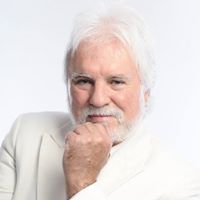A Review of Dr. Maxwell Maltz’s Book “Psycho-Cybernetics”
Dr. Maxwell Maltz’s seminal work, “Psycho-Cybernetics,” first published in 1960, presents a transformative approach to self-improvement, blending psychology with principles of self-image and visualization. As a plastic surgeon, Maltz noted a compelling phenomenon: the psychological adjustment of patients post-surgery often had a more profound impact on their self-perception and happiness than their physical transformation. This observation propelled him to explore the intricacies of the human mind and its capabilities, ultimately leading to the development of the concept of psycho-cybernetics.

I first encountered this ground-breaking work during my first year at university in 1970. The foundational premise of “Psycho-Cybernetics” is the notion that individuals operate like a guided missile which adjusts its course based on feedback. Maltz posits that the mind serves as a “servo-mechanism,” capable of directing a person’s life toward their goals, provided that one’s self-image is aligned with those aspirations. He emphasizes that many individuals find themselves hindered by negative self-perceptions, often rooted in past experiences or societal judgments. This misalignment can obstruct personal progress and hinder the realization of one’s potential. The self-image determines the ‘realm of the possible’. Henry Ford voiced a similar notion when he said ‘whether you believe you can, or you can’t, you’re right’.
Maltz introduces the reader to the concept of self-image, defining it as the mental blueprint that governs how individuals perceive themselves and their capabilities. He articulates that a positive self-image is essential for achieving success and happiness, as it propels individuals towards their objectives. The author encourages readers to reshape their self-image through practical techniques, such as visualization, affirmation, and relaxation exercises. These methods enable individuals to cultivate a more positive and empowering internal narrative, thereby fostering a mindset conducive to achievement.

The applicability of Maltz’s principles transcends various fields, ranging from athletics to business and personal relationships. His insights into visualization are particularly noteworthy; he advocates for the mental rehearsal of success scenarios as a means to build confidence and reduce anxiety. This technique has been embraced by athletes and performers, demonstrating the lasting relevance of Maltz’s ideas in contemporary settings. Personally, Dr. Maltz’s work set me on a path toward self-discovery and self-improvement that has lasted more than 50 years.
Moreover, “Psycho-Cybernetics” delves into the importance of forgiveness and letting go of past grievances, framing these concepts as essential for liberation from negative self-imagery. Maltz articulates that holding onto past failures or traumas impedes personal growth, and he offers strategies for emotional release that further enhance the reader’s journey toward self-acceptance and resilience.

Despite its strengths, “Psycho-Cybernetics” is not without criticism. Some may argue that its concepts, though profound, can oversimplify the complexities of human behavior. Moreover, while the techniques urged by Maltz have proven beneficial for many, they may not be universally effective. Nonetheless, the book’s enduring popularity, evidenced by its continued readership and numerous revisions, suggests that its core messages resonate with a wide audience.
In conclusion, Dr. Maxwell Maltz’s “Psycho-Cybernetics” offers a compelling framework for understanding the interplay between self-image and personal achievement. Through a combination of psychological insights and practical techniques, Maltz empowers readers to reprogram their minds toward positive outcomes. Although the book may face scrutiny within the broader realm of psychological literature, its practical applications and motivational insights remain pertinent. It is a testament to the power of the mind in shaping one’s reality, encouraging individuals to harness their potential and navigate their lives with renewed purpose and confidence. For me, this book inspired me to seek out other teachers. That path led me to so many other great teachers and metaphysicians, Dr. Joseph Murphy, Louise Hay, Dr. Wayne Dyer, Neville Goddard, Eckhart Tolle, Rev. Ike, Esther Hicks and Florence Scovel Shinn just to name a few.

Grant Rayner